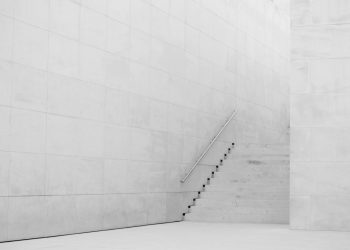In a world that never slows down, staying organized can often feel like a losing battle. Our schedules overflow, our inboxes multiply, and our to-do lists grow at an alarming rate. It’s tempting to believe that organization requires superhuman discipline or a rigid, color-coded system that dictates every moment of our lives. But what if true organization wasn’t about endless planning and constant control? What if it was about creating a flow—an effortless rhythm that supports your life without adding stress to it?
Staying organized without stress is not only possible; it’s essential for a fulfilling life. The key lies in shifting the focus from perfection to practicality, from micromanagement to mindfulness. Organization should be a tool that enhances your freedom, not a chain that restricts it.
The first step toward effortless organization is acceptance: acknowledging that life is inherently unpredictable. No amount of planning will eliminate surprises, setbacks, or spontaneous opportunities. Trying to control every variable is exhausting and, ultimately, impossible. Instead, think of organization as setting the stage for flexibility. A well-organized life doesn’t mean sticking rigidly to a plan—it means having structures in place that help you pivot with ease when things inevitably change.
One of the most powerful tools in low-stress organization is simplicity. We often overcomplicate systems because we believe complexity equals effectiveness. In reality, the opposite is true. The simpler your system, the more likely you are to stick with it. Whether it’s a single calendar app, a daily notepad, or a straightforward folder structure on your computer, simplicity breeds consistency. Choose tools and routines that feel natural to you, not ones that impress others or seem “perfect” on paper.
Another cornerstone of effortless organization is building habits rather than relying on willpower. Motivation is fickle; habits are reliable. It’s much easier to stay organized when it becomes part of your routine, like brushing your teeth or making coffee in the morning. Start small. Spend five minutes each evening tidying your workspace. Take two minutes after a meeting to update your task list. These tiny actions compound over time, creating an environment that supports clarity and calm without feeling forced.
Prioritization is another critical skill. Not all tasks are created equal, and pretending they are is a direct route to burnout. Instead of trying to do everything, focus on doing the right things. The Eisenhower Matrix—a tool that categorizes tasks by urgency and importance—can be invaluable here. When you spend more time on what truly matters and less time reacting to what feels urgent but isn’t meaningful, you’ll find that both your stress levels and your workload decrease.
Decluttering, both physical and mental, is a vital aspect of staying organized without strain. Physical clutter—piles of papers, a chaotic desk, a cluttered digital desktop—mirrors and multiplies mental clutter. Regularly clearing out unnecessary items creates a sense of space and order that translates directly to your mind. Similarly, mental decluttering through journaling, meditation, or simple reflection can help you process information and prevent mental overwhelm. A clear space often leads to a clear mind.
Time management also plays a crucial role. However, instead of trying to squeeze more activities into each day, focus on managing your energy. Everyone has natural rhythms—periods when they’re more alert, creative, or focused. By aligning your most important tasks with your peak energy times, you work smarter, not harder. Organization is not about doing more; it’s about doing better.
Another subtle but powerful practice is building buffer zones into your schedule. Leave gaps between meetings, create open spaces during your week, and resist the temptation to pack every moment with commitments. Buffers act as shock absorbers, giving you time to recover from unexpected delays, handle surprises, and simply breathe. Without buffer zones, even a small disruption can cascade into major stress.
Perhaps the most overlooked element of staying organized stress-free is emotional resilience. Even with the best systems, there will be days when things fall apart—when you forget an important deadline or double-book yourself. How you respond to these moments determines whether organization remains a friend or becomes a burden. Instead of self-criticism, practice self-compassion. Mistakes are not failures of character; they’re natural bumps in the road. Learn from them, adjust your systems if necessary, and move forward without drama.
Technology, used thoughtfully, can be a tremendous ally in this process. Apps like Todoist, Notion, Trello, and Google Calendar can help streamline task management and scheduling. But technology should serve your needs, not create new ones. Avoid falling into the trap of app-hopping—constantly switching tools in search of the “perfect” one. Mastering a few simple tools is far more effective than half-using a dozen.
Communication is another pillar of stress-free organization, especially in collaborative settings. Clear, honest communication about deadlines, expectations, and boundaries prevents small misunderstandings from ballooning into major problems. Don’t be afraid to ask for clarification, renegotiate commitments, or say no when necessary. Protecting your time and focus is not selfish—it’s essential.
One beautiful side effect of mastering organization without stress is the space it creates for creativity and joy. When your life isn’t dominated by chaos and constant crisis management, you have more mental and emotional bandwidth to pursue passions, strengthen relationships, and simply enjoy the present moment. True organization is not about squeezing productivity from every second; it’s about creating a life where the important things aren’t drowned out by the urgent noise.
Finally, understand that organization is not a destination but a dynamic, evolving process. Life changes, and your systems should change with it. Periodically review what’s working and what isn’t. Be willing to experiment. Flexibility is not a sign of weakness but of wisdom. Staying organized without stress is less about sticking to a rigid formula and more about cultivating awareness, adaptability, and intentionality.
In a culture that often equates busyness with worth, there’s something quietly radical about choosing a calmer, more deliberate path. True organization isn’t about doing everything; it’s about making sure what you do aligns with who you are and what you value most.
When you approach organization as a supportive, evolving rhythm rather than a rigid set of rules, it stops being a chore and becomes a powerful ally. It frees you—not just to get more done, but to live more fully. And in the end, isn’t that what organization—and life itself—should be about?











